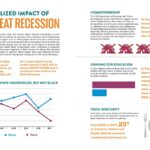
Systemic Racism 101: A Visual History of the Impact of Racism in America
Discover how—and why—Black, Indigenous, and people of color in America experience societal, economic, and infrastructural inequality throughout history covering everything from Columbus’s arrival in 1492 to the War on Drugs to the Black Lives Matter movement.

Cabo Verdean Women Writing Remembrance, Resistance, and Revolution: Kriolas Poderozas
Cabo Verdean Women Writing Remembrance, Resistance, and Revolution: Kriolas Poderozas documents the work and stories told by Cabo Verdean women to refocus the narratives about Cabo Verde on Cabo Verdean women and their experiences. The contributors examine their own experiences, the history of Cabo Verde, and Cabo Verdean diaspora to highlight the commonalities that exist among all women of African descent, such as sexual and domestic violence and media objectification, as well as the different meanings these commonalities can hold in local contexts. Through exploring the literary and musical contributions of Cabo Verdean women, the Cabo Verdean state and its transnational relations, food and cooking traditions, migration and diaspora, and the oral histories of Cabo Verde, the contributors analyze themes of community, race, sexuality, migration, gender, and tradition.


Economic Growth and Democracy in Post-Colonial Africa: Cabo Verde, Small States, and the World Economy
In , edited by João Resende-Santos and Aminah Fernandes Pilgrim, the contributors provide a comprehensive academic analysis of the political economy of Cabo Verde (Cabo Verde) from its independence in 1975 to the present. Democracy and economic growth have been in short supply in post-colonial Africa. Yet the widespread misperception of this vast and diverse continent as experiencing only failure has overshadowed cases of good governance, human development, and social peace. This volume offers a comprehensive analytical narrative on how Cabo Verde (Cape Verde) forged a nation and navigated the world system since independence to achieve some progress. The volume critically examines its political and institutional evolution, foreign affairs, economy, and development policy. The chapters analyze the sources and nature of this relative success as well as underscore the many shortcomings and challenges ahead. As the first volume in English on Cabo Verde’s political economy, it serves as both a primary source and sociopolitical study, featuring some of the most accomplished scholars and policy practitioners. This collection aims to fill this gap in the literature and offers a new perspective on democracy and growth in post-colonial Africa.






